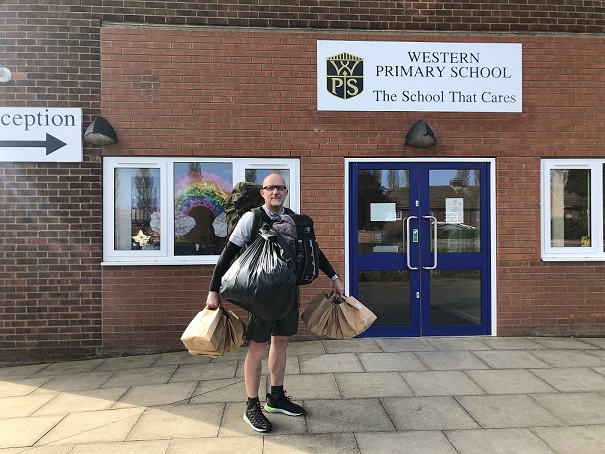
In late March, when the British Government announced it would close the vast majority of its schools, assistant principal Zane Powles knew the impact would be felt way beyond the classrooms.
Powles, assistant head of Western Primary School in the coastal town of Grimsby, was particularly mindful that for many of his students, the classroom was a second home – and in some cases, a better one.
Four out of ten students at the school are from low-income families and receive free school meals under the government’s ‘pupil premium’ program, established in 2011 to improve the attainment of disadvantaged children.
“My instant thought was how we were going to ensure that our children receive their free school meal; that their welfare is monitored; and that we support the parents in ensuring their children stay safe during the lockdown,” Powles told The Educator.
This is when Powles decided to print off a map of the local area and plot all the free school meals on it, their names and how many meals were needed at each address, including if any needed milk (nursery children are entitled to an allowance of milk every day).
“Some of the addresses were a considerable distance away so I split the areas into two-one that could be walked around and this was the majority of the children [around 80 children] and one that could be driven around [around 20 children],” he said.
“I decided to walk around the larger area, every day, as I was able to carry the weight of all the meals and manage to walk the distance and the head and deputy could split the week and do the other meals by car”.
And Powles is no stranger to lugging heavy bags for miles. He is a former soldier in the Grenadier Guards – an infantry regiment of the British Army.
“All other schools, as far as I know, were making weekly hampers with the free school meals and asking the parents to come and collect it from the schools,” he said.
“We didn’t want to do this as it didn’t allow us an opportunity to physically see the vulnerable children every day and it encouraged parents to leave the houses, with their children and passing others in the street therefore encouraging the spread of the virus”.
Powles said there was also the issue of parents that were scared to leave the house in case they caught the virus.
“Alongside this, we ring all other parents every week to ensure the same,” he said.
‘It shows the children we haven’t forgotten about them’
The community response to the initiative has been heart-warming to say the least.
“The children come to the door or windows all the time and say thank you. We can have a chat with them and they’re really happy to talk about what they’ve been doing,” Powles said.
“They’re always happy to see us and it ensures we continue the connection with school and hopefully says to them that we haven’t forgotten about them and the school is always here to support them especially when times are tough”.
Powles said this “is and always has been” the ethos of the school.
“We put the child in the centre and work out from there, always ensuring what we do is in the best interest of the child,” he said.
“Our school motto is: ‘The school that cares’, and we hope the children sense this through our contact and Free School Meal deliveries”.
As Powles walks through the estate and onto other areas delivering the meals, he is called a hero by the deeply appreciative locals.
“It’s really nice but I just see it as doing my job-looking after the welfare of children-but I’m just doing it in a way I have never done before,” he said.
“My daily five-mile walk delivering 80 school meals has made me a little bit of a local celebrity which is both humbling and embarrassing”.
Powles said he finds it all quite overwhelming as normally he is a private person who doesn’t want to be the centre of attention.
“That being said, the appreciation people are giving about the efforts are school are going to is really nice and well received,” he said.
This article is part of an ongoing series of good news stories focused on how principals, teachers and students are showing compassion, courage and humanity during this challenging and uncertain time.


